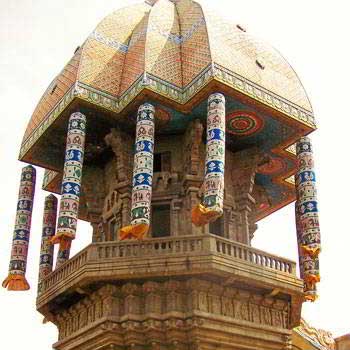Valluvar Kottam Chennai: Exploring Tirukkural's Enduring Wisdom and Heritage

Tamil, a language boasting over 2000 years of history, serves as the root for several languages including Sanskrit, Malayalam, Kannada, Telugu, Hindi, and even Russian. It is celebrated for its significant cultural heritage.
The quintessential Tamil text, the Tirukkural, has been translated into more than 80 languages worldwide. Authored by Tiruvalluvar—a revered saint and philosopher—who resided in Mylapore in southern Chennai, this text is a treasure trove of wisdom advocating for moral and ethical conduct essential for a fulfilling life.
The Tirukkural divides its teachings into three primary sections encompassing 133 chapters and a total of 1330 verses. Remarkably consistent in structure, each verse contains seven words spread across two lines. Addressing life's entire spectrum from birth to death—and even beyond—this literary work guides readers through personal morality, the pursuit of a respectable livelihood & the foundational norms for personal life. Adhering to its lessons almost guarantees a divine quality of life.
In recognition of Tiruvalluvar’ s contributions & to ensure his teachings endure through generations, former Chief Minister of Tamil Nadu M. Karunanidhi commissioned the construction of Valluvar Kottam in 1976. This monument mirrors the design of a temple chariot similar to that found in Thiruvarur Temple and features a life-size statue of Tiruvalluvar.
Visitors to Valluvar Kottam are often astounded by the bas-reliefs inscribed with all 1330 verses. Those who linger in this sanctuary can engage deeply with these enduring moral instructions.
Valluvar Kottam stands at the junction of Kodambakkam Highway bridge & College Road in Nungambakkam, Chennai. A visit offers an enlightening glimpse into a profound heritage documented two millennia ago at this distinguished site.